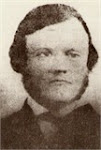THE WISCONSIN MAGAZINE OF HISTORY 1917 - 1918
. . .
PUBLICATIONS OF THE
STATE HISTORICAL
SOCIETY OF WISCONSIN.
Edited by MILO M. QUAIFE, Superintendent
ORIGIN OF THE WORD ''WINNEQUAH''
Can you give me any information concerning the origin and
historical significance of the name "Winnequah," applied" to the point
projecting into Lake Monona?
FREDERICK BRANDENBURG,
Madison, Wisconsin.
The site of Winnequah was originally known as Strawberry Point,
Squaw Point, Old Indian Garden, and Wood's Point. It was the
village home for the Lake Monona Winnebago, and when Madison
was first built it was occupied by Abraham Wood [no relation], who had a Winnebago
chief's daughter for his squaw. She was one of the illustrious
family of Decorah, and her father was chief of the band in the vicinity
of Portage. In 1885 William B. Long and Abraham Wood entered
the fifty-two acres of the point in the Mineral Point land office, and
three years later, March 24, 1888, transferred their interest to Col.
William B. Slaughter. After this transaction Wood moved to Poynette.
Slaughter kept the land as an investment. Thomas B. Sutherland,
one of the founders of the State Historical Society, was wont
to relate his experiences as surveyor in 1885 when he spent some time
at the Indian village at Strawberry Point. The name "Winnequah"
was bestowed upon the point some time in the late sixties by Capt.
Francis (Frank) Barnes who ran a steamboat line on Lake Monona.
Barnes had a fancy for odd names; one of his boats was named the
"Scutanaubequon." He built a dancing hall on the point and fitted
it up for picnic parties and seems to have invented the word "Winnequah."
At least, its meaning is not to be found among the Winnebago
vocabularies, nor is it susceptible of any interpretation except that
it is made up of Winnebago Squaw Point. Barnes carried on his
steamboat line from 1866 to 1878 or 1874, perhaps later. The Madison
directory for 1877-78 lists him as "captain of tu:g." The owner
of Strawberry Point-to revert to its first name--from 1868 or
earlier was N. W. Dean. He seems to have rented or leased the land
to Barnes for his picnic grounds.
***
MORE LIGHT ON THE ORIGINATOR OF "WINNEQUAH"
As a medieval Madisonian, I protest against your summary
termination of the activities of "Cap" Barnes at "1878 or ]874,
perhaps later.'" He was positively an institution in and of Madison,
and I positively remember him and his steamboat line at least as late
as 1889. His steamboats, the Scutenaubeqoun and the Waubishnepawau
lent new terrors to the aboriginal tongues. His later
divergence to Silenzioso bore witness to the liveliness, if not the
expertness, of his linguistic imagination. No Madisonian of the
Victorian age, so to speak, will recall "Angleworm Station" without
a warming of the heart to the memory of "Cap" Barnes. His midwinter
straw hat and his irrepressible gaiety are intimately associated
with our tenderest Madison memories. Picnics? Madison was the
home of them, and "Cap" Barnes and his steamboat, in combination,
were preessential to them. It was "Cap" Barnes who hit upon the
first discovered practical use of the abortive capitol park driven
well: "Pull it up, saw it into lengths, and sell it to the farmers for
post holes."
Statesmen, prophets, and nabobs, Mr. Editor, may pass into
oblivion-but touch reverently on the memory of "Cap" Barnes.
Madison would never have been the Madison of its golden age without
him.
CHARLES M. MORRIS.
Milwaukee, January 7, 1918.
















I wonder why the Ojibwe and HoChunk reject the settlers playing with words in the Algonquin and Souian traditions. Neither Chippewa nor Winnebago are acceptable to many speakers of these languages.
ReplyDeleteEven the English dictionary in our Monona Library list Squaw as pejorative in usage...so to use squaw for spouse is not free from this prejudice.
I wonder why no history from the 'bottom up' doesn't look at settler's use of native languages and why indigenous peoples reject them.